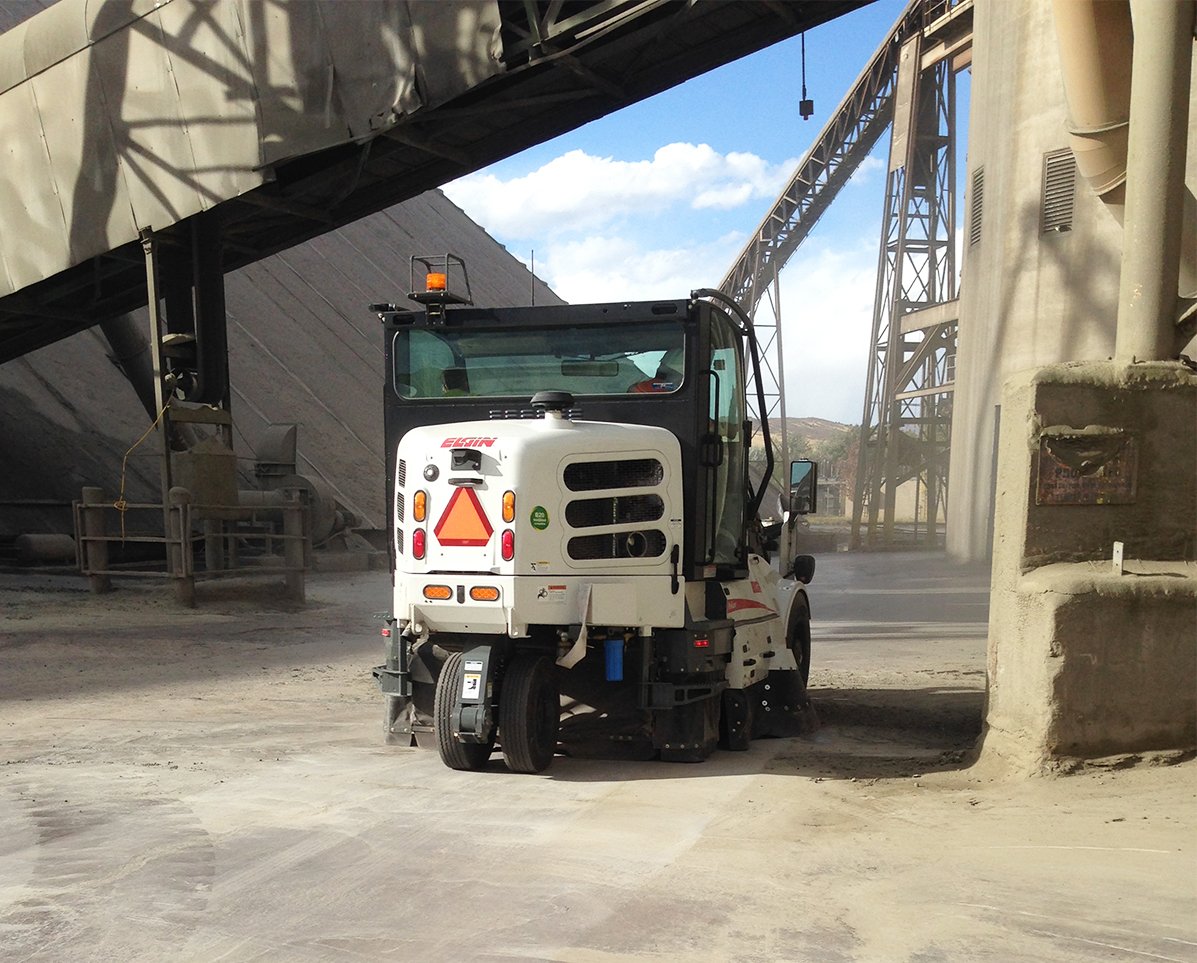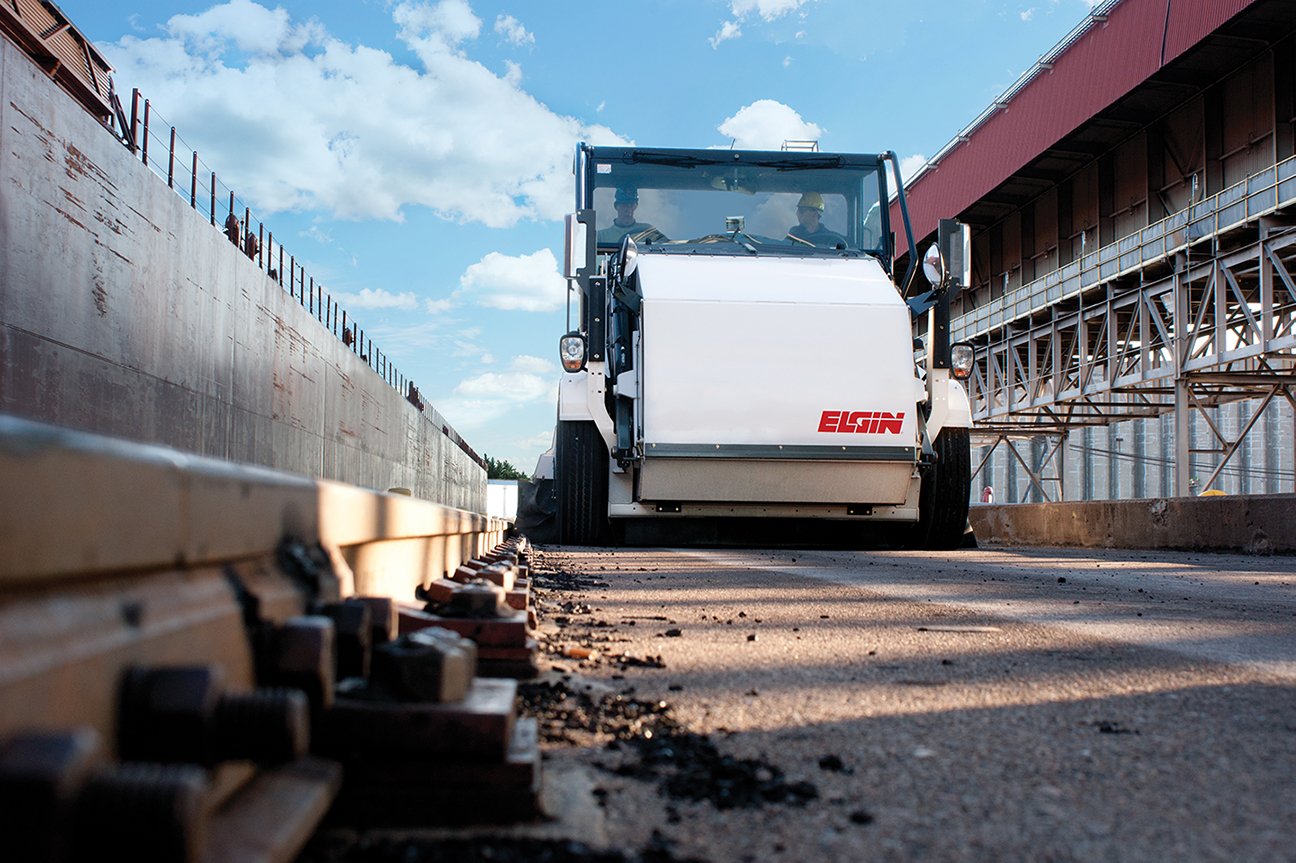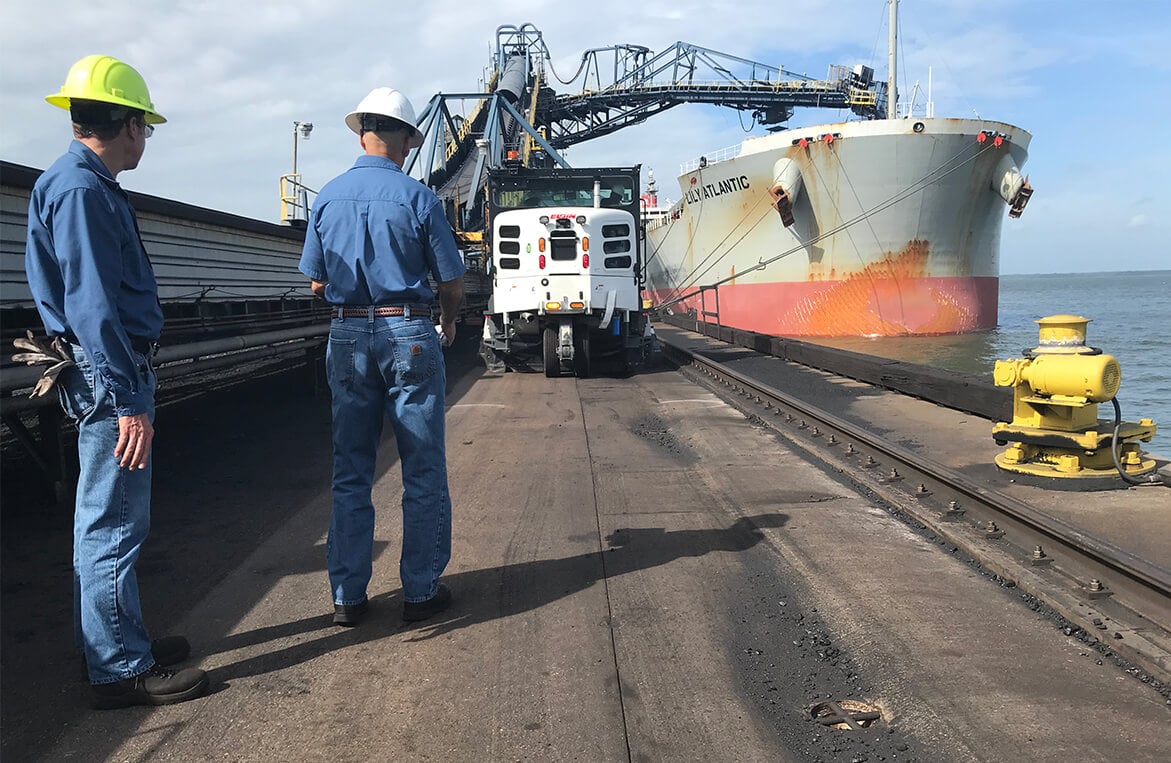Industrial Applications of Street Sweepers
Cement Plants
Regular and thorough sweeping is crucial to maintaining a safe working environment at a cement plant. Cement production involves grinding, mixing, and handling of raw materials, which can generate significant amounts of dust.
- Inhalation of cement dust can lead to respiratory issues such as asthma, bronchitis, and other lung diseases. Prolonged exposure to cement dust can also cause lung cancer. Sweeping helps to remove this dust from the environment.
- Cement plants involve heavy machinery, moving parts, and large equipment, which can present physical hazards if not properly maintained. Dust particles can enter machinery and cause mechanical failure. Accidents can occur due to falls, entrapments, and contact with moving objects, leading to serious injuries or even fatalities.
- Cement product is reactive with water, so industrial or waterless sweepers are required to control dust and achieve the benefits of sweeping in this environment.
Power Plants
Street sweeping plays a critical role in maintaining the overall functionality, safety, and environmental sustainability of coal and fossil fuel power generating facilities. Waterless sweeping is essential in removing these bulk powders, in order to avoid the material sticking to surfaces.
- Coal power plants produce combustible dust such as coal dust and fly ash as a byproduct of the combustion process.
- Fine airborne coal dust and fly ash can become airborne, posing respiratory health risks for workers and nearby communities. Furthermore, this dust can enter and accumulate within power plant equipment, causing damage and reducing efficiency.
- Accumulation of combustible coal dust around the plant, streets, and parking lots can increase the risk of explosion and fire. Regular sweeping also prevents this material from washing into and contaminating nearby bodies of water.


Ports
The type of materials that can be found at ports varies widely, ranging from spilled bulk powder to large bulky material such as broken pallet pieces. Ports are congested areas that require sweepers with high maneuverability. Most ports contain a system of railroad tracks as well running from the shipping docks to the outside transportation terminals.
Grain Processing
Typical sweepers needed in plants where grain is processed into powder for various applications are needed to sweep up ground grain spilled around the processing as well as track out. Sweepers must be able to handle the fine grains, like processed corn or wheat, which are dry bulk powders that react to water, meaning they can begin to ferment and create odor problems. Sweeping should be dry, yet able to handle small particles.
Lime and Quarry Processing
Lime and quarry operations need to move sweepers out on main and ancillary roads where material spillage happens. The typical material to be swept is sand, gravel and lime dust.
Suggested Sweepers for
Industrial Applications
The Waterless Pelican is the most effective in these industrial applications. It can sweep the dry dusty particles without using water to suppress the dust. The Waterless Pelican also has an industrial option that includes reduced broom speed, a lower roller deflector and special skirting all designed for superior performance in bulk powder applications.

Industrial Applications
|
|
